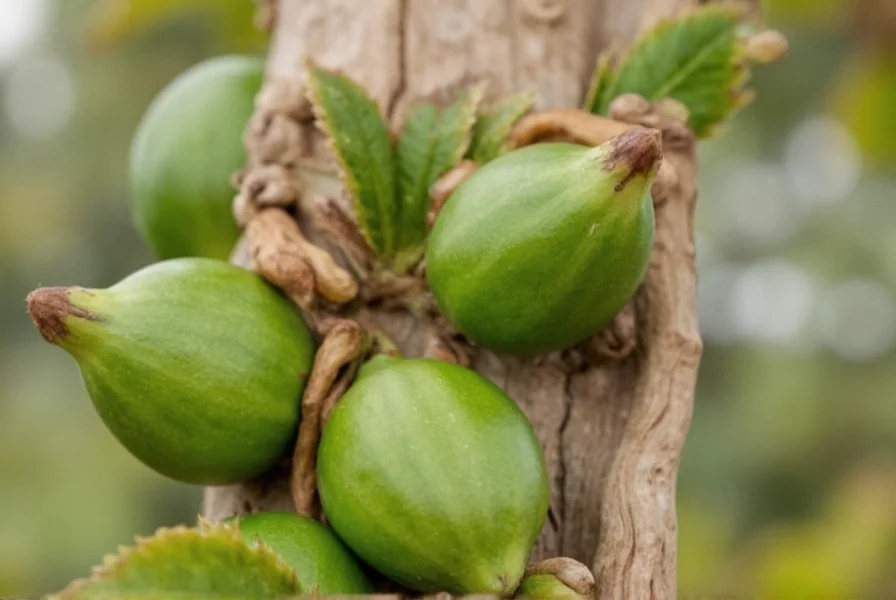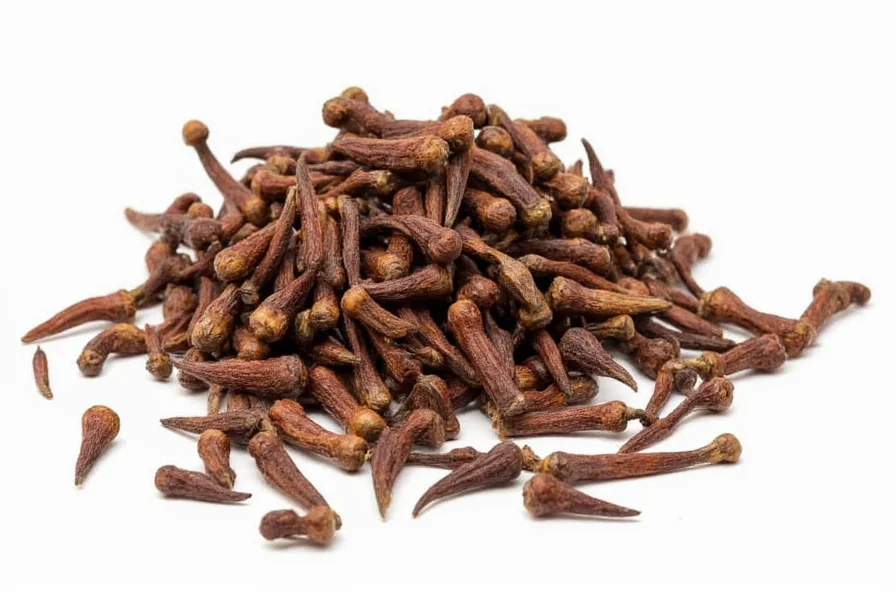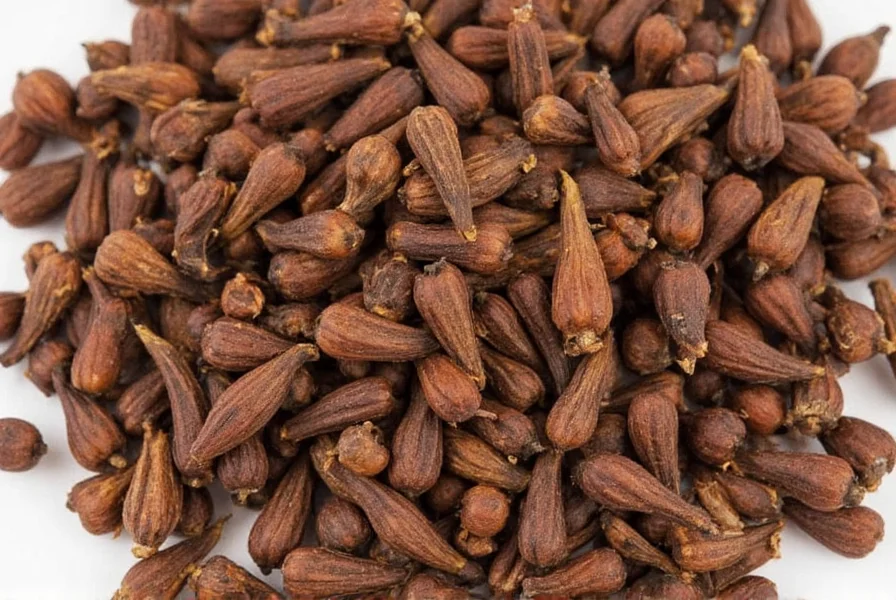Clove buds represent one of the most versatile and historically significant spices in global cuisine and traditional medicine. These unopened flower buds from the evergreen clove tree (Syzygium aromaticum) offer concentrated flavor and therapeutic compounds that have made them valuable across cultures for millennia. Unlike ground clove powder, whole clove buds retain their essential oils and potency longer, making them preferred for certain applications.
Botanical Characteristics and Harvesting Process
Clove trees grow primarily in tropical climates, with Indonesia, Madagascar, and Tanzania accounting for most global production. The harvesting process requires precision timing—buds are picked when they transition from green to pink but before they open into flowers. This typically occurs in the morning when essential oil concentration peaks. After harvesting, workers traditionally spread the buds on mats to sun-dry for 4-5 days until they turn dark brown and brittle.

Nutritional and Chemical Composition
The therapeutic value of clove buds stems primarily from their rich chemical profile. Approximately 15-20% of dried clove bud composition consists of essential oils, with eugenol comprising 70-90% of these oils. Other significant compounds include:
| Compound | Percentage | Primary Function |
|---|---|---|
| Eugenol | 70-90% | Antimicrobial, analgesic, anti-inflammatory |
| Beta-caryophyllene | 5-15% | Anti-inflammatory, antioxidant |
| Eugenol acetate | 5-10% | Flavor compound, mild antimicrobial |
Nutritionally, one tablespoon (6g) of whole clove buds provides approximately:
- 22 calories
- 1.1g protein
- 4.3g carbohydrates
- 2.8g dietary fiber
- Significant amounts of manganese (40% DV), vitamin K (5% DV), and calcium (3% DV)
Culinary Applications of Clove Buds
Chefs and home cooks value clove buds for their warm, pungent flavor that enhances both sweet and savory dishes. Unlike ground cloves, whole buds maintain their integrity during cooking, allowing for easy removal before serving. Popular culinary uses include:
- Pickling and preserving: Whole clove buds infuse vinegar-based solutions with complex flavor
- Braising liquids: Added to pot roasts, stews, and braised meats for depth of flavor
- Baked goods: Pressed into oranges for mulled wine or embedded in hams
- Spice blends: Essential component in garam masala, pumpkin spice, and Chinese five-spice powder
- Infused liquids: Steeped in milk for chai tea or in simple syrup for cocktails
When using clove buds in cooking, remember that their flavor intensifies with heat and time. Generally, 3-4 whole buds provide sufficient flavor for a dish serving four people. For even distribution of flavor without the texture of whole buds, many chefs toast and grind them immediately before use.
Medicinal Properties Supported by Research
Traditional medicine systems worldwide have utilized clove buds for dental care, digestive support, and respiratory relief. Modern research provides evidence for several applications:
Dental Health Applications
Multiple studies confirm clove bud's effectiveness for temporary toothache relief. A 2022 review in BMC Complementary Medicine and Therapies analyzed 15 clinical trials and found that eugenol from clove buds significantly reduced dental pain compared to placebo, with effects comparable to benzocaine in some formulations. Dentists sometimes use clove oil preparations following tooth extractions to manage pain and prevent dry socket.
Digestive Benefits
Research published in the Journal of Ethnopharmacology demonstrated that clove bud extract stimulates gastric secretions and enhances digestive enzyme activity. Participants consuming clove bud tea after meals reported reduced bloating and improved digestion compared to the control group. The compounds in clove buds may help relax gastrointestinal smooth muscle, explaining their traditional use for nausea and motion sickness.
Antimicrobial Properties
Lab studies show clove bud extract exhibits broad-spectrum antimicrobial activity against bacteria including E. coli, S. aureus, and C. albicans. While not a replacement for antibiotics, these properties support traditional uses for minor wound care and oral hygiene. A 2021 study in Phytotherapy Research found that a 2% clove bud oil solution reduced oral pathogens by 65% when used as a mouth rinse.
Proper Storage and Preparation Techniques
To maximize shelf life and potency of clove buds:
- Store in airtight glass containers away from light and heat
- Keep away from strong-smelling foods as cloves readily absorb odors
- Check for freshness by squeezing a bud—it should feel hard and release aromatic oils
- Grind only what you need immediately before use for maximum flavor impact
When preparing clove buds for recipes, consider these techniques:
- For even flavor distribution: Lightly toast whole buds in a dry pan for 1-2 minutes before grinding
- For infused liquids: Simmer 5-6 buds per cup of liquid for 10-15 minutes
- For pickling: Use whole buds directly in vinegar solutions
- For baking: Press whole buds into fruits or embed in meats before roasting

Safety Considerations and Potential Side Effects
While generally recognized as safe for culinary use, clove buds present some considerations:
- Dental use: Never apply undiluted clove oil directly to gums for extended periods as it may cause tissue damage
- Children: Avoid giving whole clove buds to young children due to choking hazard
- Pregnancy: Culinary amounts are safe, but therapeutic doses should be avoided without medical consultation
- Medication interactions: May enhance effects of blood thinners; consult your physician if taking anticoagulants
- Allergic reactions: Rare but possible—discontinue use if experiencing mouth irritation or digestive upset
The maximum safe daily intake of clove bud products hasn't been established, but culinary use (up to 1-2 grams daily) appears safe for most adults. Therapeutic applications should follow professional guidance, as concentrated eugenol can cause liver toxicity in excessive amounts.
Clove Bud vs. Other Clove Forms
Understanding the differences between clove forms helps optimize their use:
- Whole clove buds: Longest shelf life (1 year), ideal for infusions and dishes where removal is possible
- Ground cloves: Convenient but loses potency quickly (3-6 months), best for baking and spice blends
- Clove essential oil: Highly concentrated (use 1-2 drops diluted), primarily for topical or aromatic use
- Clove bud tea: Milder preparation suitable for daily consumption and children over age 6
For maximum benefit, choose whole clove buds when possible and grind them fresh. This preserves the volatile compounds that provide both flavor and therapeutic effects. When substituting between forms, remember that 1 whole clove bud equals approximately 1/4 teaspoon ground cloves.
Conclusion: Maximizing Clove Bud Benefits
Clove buds offer a remarkable combination of culinary versatility and science-supported health benefits. Their rich eugenol content provides antimicrobial, anti-inflammatory, and analgesic properties that have stood the test of time across traditional medicine systems. When incorporated appropriately into cooking or used for specific therapeutic purposes, clove buds can enhance both flavor profiles and wellness routines. Remember to store them properly to maintain potency, use them judiciously due to their strong flavor, and consult healthcare providers when using them for medicinal purposes, especially if you have underlying health conditions or take medications.
Frequently Asked Questions
What's the difference between clove buds and cloves?
Clove buds and cloves refer to the same thing—the unopened flower buds of the Syzygium aromaticum tree. The term "clove buds" emphasizes their botanical origin as flower buds before they open, while "cloves" is the common culinary term for these dried buds. There is no botanical difference between the terms.
How do I use clove buds for toothache relief?
For temporary toothache relief, gently chew one whole clove bud to release its oils, then place it near the affected tooth. Alternatively, mix 2-3 drops of clove bud oil with one teaspoon of carrier oil (like olive or coconut oil) and apply to the painful area using a cotton swab. This provides temporary relief but should not replace professional dental care for persistent pain.
Can I eat clove buds directly?
While technically safe to chew whole clove buds, their intense flavor and hard texture make direct consumption unpleasant for most people. In culinary applications, they're typically removed before serving. For therapeutic use, clove bud tea (steeping 2-3 buds in hot water for 5-10 minutes) provides benefits without the harsh texture. Never give whole clove buds to young children due to choking risk.
How long do dried clove buds stay fresh?
Properly stored in an airtight container away from light and heat, dried clove buds maintain optimal flavor and potency for 12-18 months. After this period, they remain safe to use but gradually lose their aromatic compounds and therapeutic benefits. To test freshness, squeeze a bud—it should feel hard and release a strong aroma. If they've become brittle and crumble easily or have little scent, they've lost most of their potency.
Are there any drug interactions with clove buds?
Yes, clove buds may interact with certain medications. The eugenol content can enhance the effects of blood-thinning medications like warfarin, increasing bleeding risk. Clove may also affect blood sugar levels, potentially interacting with diabetes medications. If you take prescription medications, especially anticoagulants or diabetes drugs, consult your healthcare provider before using clove buds in therapeutic amounts beyond normal culinary use.











 浙公网安备
33010002000092号
浙公网安备
33010002000092号 浙B2-20120091-4
浙B2-20120091-4